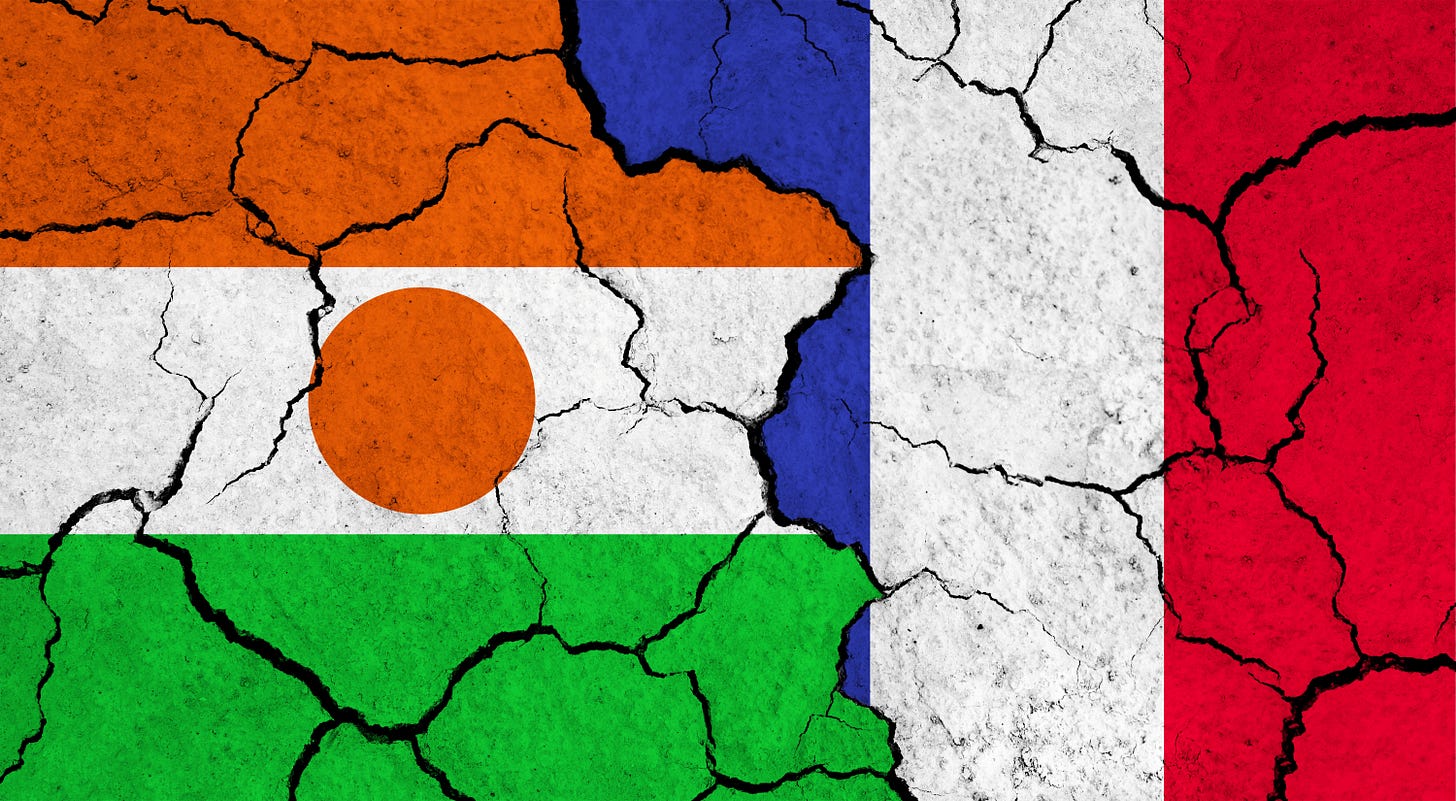I often write about the degradation of Western military and defense industrial capabilities. Military overmatch, or at least the appearance of it, has been among the necessary tools to sustain the Western-led order of the post-Cold War period.
We have seen cracks in this military façade for some time. Now we see them in the foundation. A case in point is the West’s lack of capacity to sustain Ukraine in high-intensity warfare, much less to mount such an operation themselves—especially against a capable adversary.
France now faces a conundrum in Niger, brought about by a recent military coup in that country. The situation brings to mind an earlier episode on the African continent. Operation Serval was a UNSC-backed, French military operation in Mali in 2013-2014 (which then transitioned to Operation Barkhane.) What stood out to me at the time was France’s lack of airlift. France supplied personnel but was reliant on other nations for transportation. On its own, France could not have gotten its people and their materiel in place to initiate or sustain this mission.
Capability sharing is a feature of NATO, particularly among European member nations, but Operation Serval was not a NATO operation. Indeed, NATO’s Secretary General rejected formal intervention on the grounds that the alliance could not be the world’s policemen. Even so, many individual NATO countries, and even some non-NATO countries, stepped in to fill the gap.
Fast forward to the present situation. “Niger supplies 15 percent of France’s uranium needs and accounts for a fifth of the EU’s total uranium imports.”1 Macron said yesterday that France, “will not tolerate any attack against France and its interests.”2
There could be a non-military outcome to this situation. In fact, most such cases resolve in this manner. Niger’s current rulers might opt for an accommodation that avoids conflict, or they could lose power altogether. We simply do not know.
But if push comes to shove, what could France do? There has been no significant investment in France’s capabilities since Operation Serval. Any meaningful military response would have to be a coalition effort drawing on the same nations currently under stress by their ongoing proxy war in Ukraine. This is not to say the West is incapable of mounting an operation, but could they sustain an extended one—militarily, politically, or otherwise?
I raise these questions not to focus on Niger, France, or uranium specifically, but to underscore the deepening fragility of the existing international order. As Western hegemony grows ever more tenuous, events like the present one in Niger will be ever more significant—and many more will follow.
(This piece belongs to the thematic series, “Western Leadership and Other Myths.”)
Learn more about my company here: https://www.lee-bt.com
Follow me on Twitter here: https://twitter.com/LeeBTConsulting
Giorgio Leali, “Niger Coup Sparks Concerns about French, EU Uranium Dependency,” Politico Europe, July 31, 2023; https://www.politico.eu/article/niger-coup-spark-concerns-france-uranium-dependency.
Ibid. I added the italics for emphasis.




